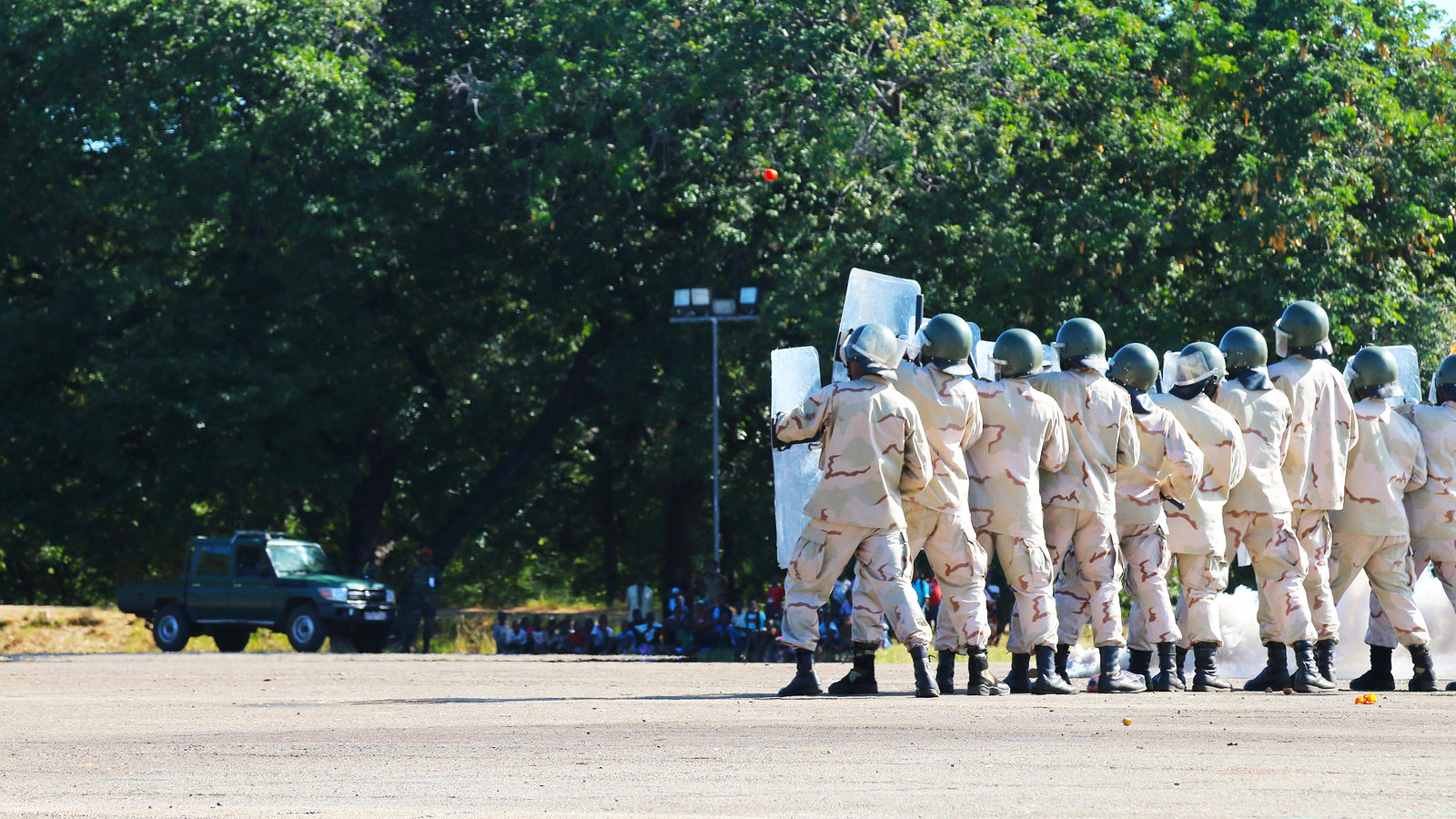Recurring questions in Ghana about who constitutes the electorate have in recent years turned to the issue of foreign voters. Are people crossing national borders during elections truly eligible? Political parties have begun to exploit the lack of a simple answer, but only when it strategically suits them.
Since its return to a multi-party system in the early 1990s, international observers have praised Ghana’s elections. The process has been peaceful with three alternations of power between the two main parties. However, disputes over the voters’ register and mutual accusations of electoral malpractice have been recurrent. Because elections are based on the compilation of voters’ rolls, these issues point to essential debates about who is entitled to vote.
In the build-up to the December 2016 elections in Ghana, the then opposition New Patriotic Party (NPP) claimed that the voters’ register was bloated by more than 76,000 potential ‘foreigners’, who were registered on both the Togolese and the Ghanaian voters’ rolls. The claim cast doubt on the citizenship status of voters who crossed the border from Togo to vote in Ghana. This draws attention to what I call in my research ‘cross-border voting’ – the movement of people occurring between neighbouring countries during elections to register and vote.
The National Democratic Congress (NDC) party, at the time holding a majority government, argued that these individuals were in fact part of the Ghanaian diaspora in Togo, which was why the NDC targeted the area for electoral campaigning. This debate raised an important question about identity that regularly reappears in Ghana before each election: who decides who constitutes the electorate?
Citizenship and the right to vote
Article 42 of the 1992 Constitution states that a voter must be a citizen of Ghana, at least 18 years old and of sound mind. But one is not so easily able to determine who is a citizen.
The citizenship criteria changes according to the constitution under which an individual was born. However, one’s citizenship usually depends on one’s parent’s or grandparent’s citizenship, and under which constitution and criteria their Ghanaian nationality was secured.
Dual citizenship is theoretically authorised in Ghana and Togo. As a consequence, it can be legal to have one’s name on both voters’ registers. The amendment to the 1992 Constitution passed in 1996 (527th Act of Parliament) authorises dual citizenship and does not limit its scope. In Togo, unless you explicitly ask successfully to renounce your nationality, you can be a dual citizen.
In the borderlands, it is highly probable that many people meet the criteria of both countries, given marriage between men and women from both sides of the border has been an old practice dating from the late nineteenth century, mobility is intense across the border for trade purposes and there are cross-border chieftaincies. Many people, theoretically, are dual citizens and should not be excluded from the vote in Ghana.
In practice, however, how can one identify a Ghanaian citizen? Many individuals do not have identity documents. In Ghana, when an individual cannot prove their citizenship with documents but wishes to register on the voters’ roll, the law specifies that two persons vouch for the individual. It is easy for anyone without ID documents to have their name entered on the voter’s roll even if the registration is biometric.
The Electoral Commission’s panel’s inquiry into the matter came to the same conclusion: ‘there is … currently, no reliable objective way of confirming the citizenship of an individual’.
How political parties define the electorate
Political parties in Ghana exploit the difficulties of establishing with certainty the citizenship of an individual. Since the law does not satisfactorily determine who the electorate is, political parties raise questions that cast doubt on the legality of the vote of those whose citizenship is difficult to establish, when it is deemed strategically useful.
Strangely, the issue bears similarities with an older debate in Ghana: the vote of the diaspora. The Representation of the People’s Amendment Act (ROPAA 2006) made it legal for Ghanaians abroad to vote. The NDC claimed that this law was a means to rig elections since it enabled the enrolling of potential unqualified voters abroad. The Constitutional Instrument to apply the law was not introduced, so the law was never applied. The debate is coming back to the fore with the upcoming 2020 elections.
The similarities on the terms of the debate are striking. In both, a party accuses the other of electoral malpractice by enrolling potential foreigners on the voters’ register. The only difference is that, in the case of the 2016 election, a nearby diaspora with only a border to cross on foot or on a bus is more advantaged than a faraway diaspora that has to fly back to Ghana.
The issue is contentious for political parties because the nearby diaspora (in Togo) is perceived as feeding the NDC stronghold (the then Volta Region, also referred to as the ‘NDC World Bank’) because it has steadily and massively voted for the NDC since the beginning of the 1990s, whereas the faraway diaspora is perceived as voting for the NPP. As such, both parties argue strategically for or against ROPAA, and for or against letting the individuals who cross the border from Togo to Ghana to vote. In their accusations of foreigner enrolment, the NPP seems to have targeted the border with Togo with electioneering strategies, most probably because it feeds the NDC stronghold, whereas cross-border voting happens on all Ghanaian borders.
Neither citizenship law nor political parties that seek to capitalise on its ambiguities provide a satisfactory answer as to who decides who gets to vote.
Local actors in the borderlands and cross-border voting
At the local level, the well-being of the community depends on the participation of each member. Where there may not be any other ‘support system’, belonging to a community is vital, negotiated itself with the community. The performance of this belonging is therefore important to ensure that it is recognised.
Cross-border voting is one of the ways to perform belonging. First, my research shows that transnational family links are an incentive to vote on the other side to support the family’s choice. Second, borderland traditional chiefs are wooed by political parties to encourage their people’s vote in exchange for different goods, such as access to Ghanaian health insurance (which is wrongly believed to be free), the construction of a well in the village, food or agricultural tools. The Togolese borderlands, in particular, are isolated and lack basic infrastructure, which Ghanaian political parties propose to improve with their offers.
In this context, cross-border voting represents a moral duty to support the community. It is a manifestation of belonging in cross-border communities, and one of the ways it can be performed and maintained.
In this sense, traditional chiefs, border communities, relatives and local representatives of Ghanaian political parties who campaigned in Togo acted as gatekeepers of the vote. Importantly, they are located at the local level.
Ahead of the 2020 elections, the voters’ roll is still at the centre of debates. ROPAA will be implemented for the 2020 elections after an order by the Accra High Court in 2017 asked the Electoral Commission to begin the process of implementation. Several regions have been split in two, including the NDC stronghold, the Volta Region. The result is that the 2020 elections promise new dynamics in terms of who can vote where, and whether the now split Volta Region will affect the results of the ‘NDC World Bank’.
Photo: ‘Ghana Decides’ by NPP is licensed under creative commons (CC BY 2.0).






Interesting research findings and/or views, except that it narrowly focuses on the Togolese border and border communities perhaps to the South. It would have been broadly revearling if the research, for comparative reasons, had also covered the other borders to the North with Burkina Faso, and to the West with Cote d’Ivoire.